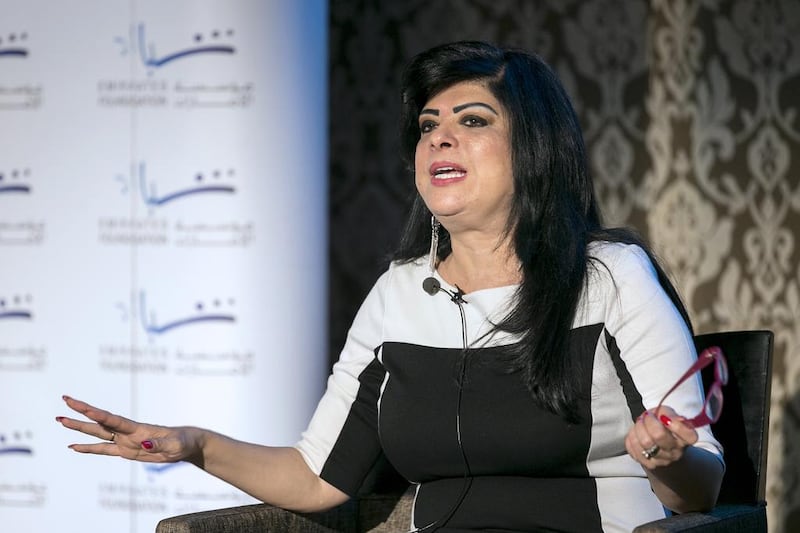"I am neither charity nor business . what am I?" A real-life riddle, the answer is a social enterprise - but you'd be forgiven for not knowing, as it appears the UAE is confused by the concept.
While countries such as the US and UK have implemented laws to specifically license, register and regulate social enterprises, here, in the Emirates, where businesses are looked after by the Department of Economic Development and charities by the Ministry of Social Affairs, social enterprise - the "third sector" - falls into a gap.
Dr Iman Bibars, regional director for Ashoka Arab World, says Ashoka, a network of social entrepreneurs, has already been registered in 80 countries but could not do so in the Emirates as it was neither charity nor business, so had to be set up in her name.
"Issues like renewable energy in the Gulf need a scalable resolution," says Dr Bibars. "We need young people with new, out-of-the-box ideas to solve social problems with a business model. They need to take calculated risks, to not be afraid of bankruptcy, of cost. But free zone costs in the UAE can be Dh20,000 to Dh30,000; expensive for a start-up. And bankruptcy sends you to jail in the Middle East, unlike the US.
"We need the laws to be flexible to attract thousands of young Emirati women and men, to be going against the current, to disrupt. The [UAE's] laws are the best in the Arab world but they still do not fit social enterprise."
Medea Nocentini, vice president of corporate development at OSN, made a similar move when she personally founded C3 (Consult & Coach for a Cause), which helps social entrepreneurs find mentors to get a business idea off the ground. She registered in Fujairah, the easiest and cheapest free zone, she says. "As there's no tax here, it's OK to set up as 'for profit' - but it's hard to communicate that beyond the UAE," Ms Nocentini adds.
So what exactly is a social enterprise? "Social enterprises are distinct from non-governmental organisations [NGOs] and charities in that they apply business principles, such as cost efficiency and financial viability," says Clare Woodcraft-Scott, chief executive of the Emirates Foundation for Youth Development. "They are very focused on scale, creating lasting outcomes for thousands, if not millions of people.
"They are also different from a conventional business: they develop products and services that primarily have a social purpose. While they are generating income, they reinvest their profits or surplus back into their operations."
John Habib, chief legal counsel of Mena Bridge Advisors, says that limited liability companies, or LLCs, are still the predominant form of business in the UAE. For social enterprise, "a federal-level law would be a magic wand; not a Balkanisation into free zones, but a federal, onshore and best practices hybrid." But in the meantime, as C3 and Ashoka have, he says it is best for entrepreneurs to just get going as a business if they have to.
Ms Woodcraft-Scott, a fluent Arabic speaker who has spent 20 years in the Middle East, says the concept is nascent in Mena so "there is still a lot of focus on the definition".
She explains: "In Arabic, various terms exist, but there is general consensus that social enterprises are a key disruptive, hybrid model at the intersection of the public, private and non-profit sectors - the 'missing middle' between corporates, governments and traditional social entities." The Middle East is a fertile ground for social entrepreneurship. "Few regions have such a pressing challenge - to create 80 million jobs in the next 15 years and engage a population of over 300 million, of which half are under the age of 25," says Ms Woodcraft-Scott.
"Social enterprise is not a panacea, but its business based approach and its ability to harness the energy of Generation Y Arabs, means it is a subject high on the regional radar. The idea is gaining traction in the UAE, where there is appetite for start-up businesses and a focus on innovation."
With that in mind, the Emirates Foundation is again launching a competition to encourage young Gulf Arab "venture philanthropists" to tackle social challenges. Last year, winning projects ranged from an online portal to connect entrepreneurs with investors to waterproof hearing aids for deaf swimmers and healthy lunches at school cafeterias.
However, the failure rate for the social entrepreneur is high - only 10 per cent last beyond the first two years, says Ms Nocentini. "It's a 20 to 30-year game, not a two-year experiment," she emphasises.
business@thenational.ae
Follow The National's Business section on Twitter
UAE must recognise social enterprise as a business entity
Social enterprises may be 'not for profit' but with such ventures falling through the gap, for many social entrepreneurs the only way to get their company registered is as an LLC.

Editor's picks
More from the national




